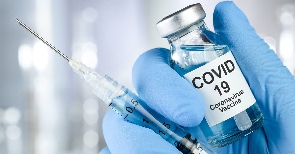Dr. Frank Donkor, a lecturer in Operations and Supply Chain Management at the University of Kent Business School, U.K has stated that the pharmaceutical supply chain in Ghana (like most African countries) is not as matured as that of European nations.
In a press release to (delreport), Dr. Frank Donkor said: "there is less adoption of the best supply chain practices and a high level of resource constraints.
He, therefore, warns that several practical collaborative steps must be taken to achieve the vaccine rollout in Ghana-a well-coordinated and integrated supply chain is needed to achieve the set objectives of the rollout.
"Ghana’s leaders must be transformational and transactional to carry out the vaccine rollout effectively and efficiently to meet the set objectives," he noted.
Undermentioned are practical steps to ensure effective and sustainable COVID-19 vaccine distribution across Ghana, as explained by Dr. Frank Donkor in a press release:
1. There must be strong integration between internal stakeholders (e.g. Ghanaian government, healthcare workers, etc.) to ensure objectives are clearly set out and agreed upon whilst recognizing all internal resources needed to achieve these. This strong internal base is needed for the effective involvement of external stakeholders (e.g. vaccine suppliers, distributors, and citizens) to meet the objectives of the rollout. In simple terms, a weak internal base leads to an ineffective and inefficient vaccine rollout for Ghanaians.
2. Strong collaboration with suppliers, distributors and upstream stakeholders is needed to ensure the consistent and on-time delivery of additionally sourced vaccines. This is a very important initial step in reaching herd immunity in Ghana.
3. The Ghanaian government must adopt higher forms of integration with the citizens (using diverse approaches and platforms) to ensure proper dissemination of accurate and timely information throughout the supply chain, most importantly downstream. This is essential, as despite the availability of the vaccines, most Ghanaians are keen on first knowing their efficacy and safety before accepting. The dissemination of information will also help to eliminate misconceptions that the vaccinated are 100% immune (as a number currently do), thus encouraging continuation of safety protocols'
4. There must be consistent monitoring and data gathering to ensure that informed decisions are made by and for Ghana. Through this, patient satisfaction levels can be increased significantly downstream for the supply chain, leading to greater take-up of the vaccine and the overall success of the rollout.
Health News of Monday, 12 April 2021
Source: Dela Ahiawor, Contributor

















